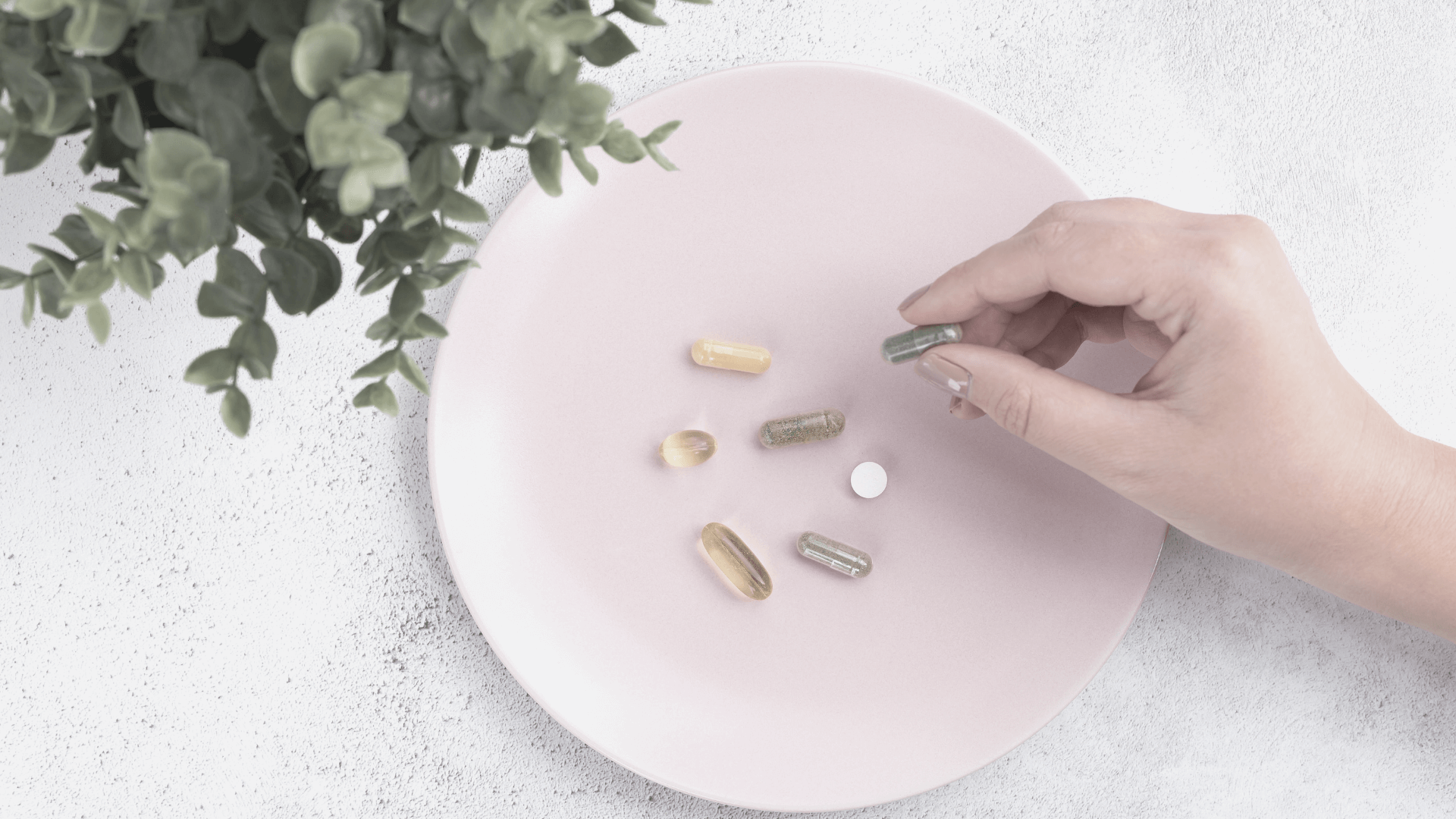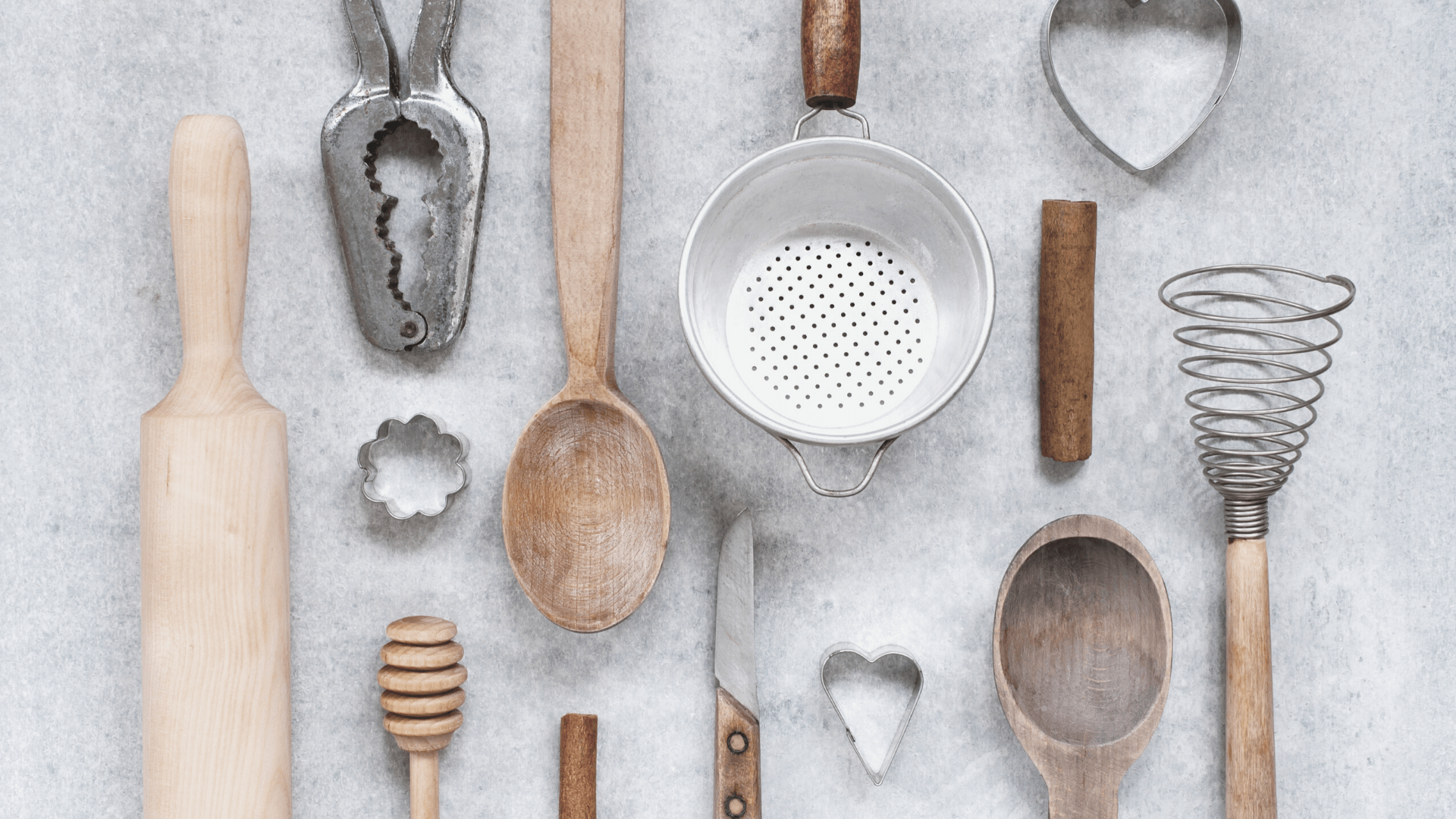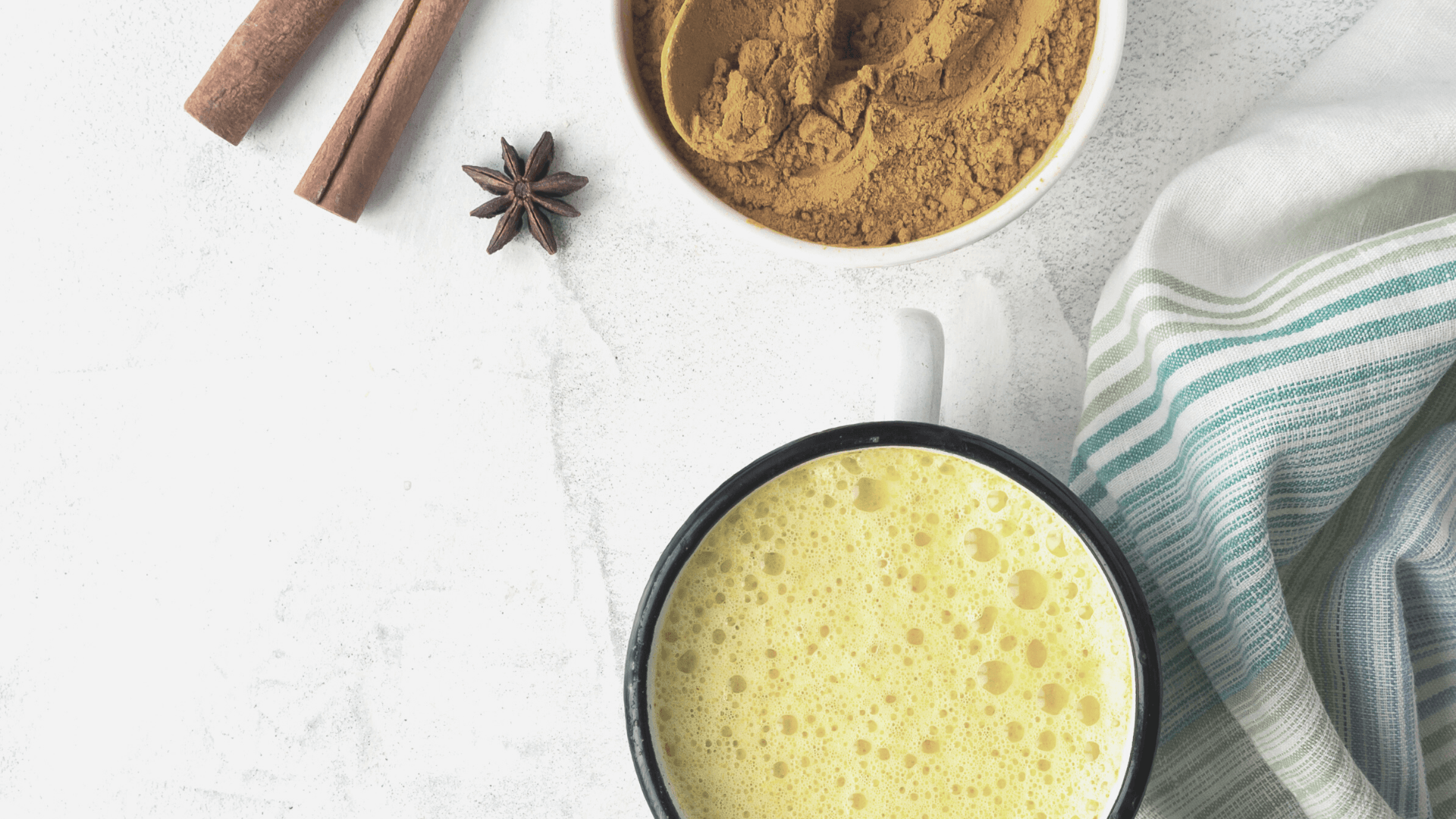You might be wondering, “Does coffee cause leaky gut?” And that’s because it’s what you have heard. So let’s explore it today.
After I recently posted 10 factors slowing your healing on Instagram, I got a lot of messages regarding several of them.
For today’s bite-sized podcast episode, I’m going to run through the most popular…that cup of morning coffee.
Subscribe Today:
Apple Podcasts | Google Podcasts | Spotify | iHeart Radio | RSS
Resources
- Does Coffee Cause Inflammation {episode 2 with Kelsey Kinney}
- John Hopkins
- All About Acid Reflux
- Article from the NIH
- Drink LMNT – get my fave “coffee” addition flavors (Chocolate Salt, Mint Chocolate, Chocolate Caramel)
- A Gutsy Girl’s FREE 3-Day Detox Plan: The First Three
- The Gutsy Bundle
- A Gutsy Girl supplement line, guthealingsupplements.com
Don’t Miss These Thoughts
- Top 10 factors slowing your healing
- Coffee health benefits
- Problems with coffee while healing
- Does coffee cause leaky gut syndrome?
- 5 tips for drinking your coffee
Does Coffee Cause Leaky Gut {+ 9 other factors slowing your healing, Episode 17, Bites #18}
Click HERE to save this episode for later.
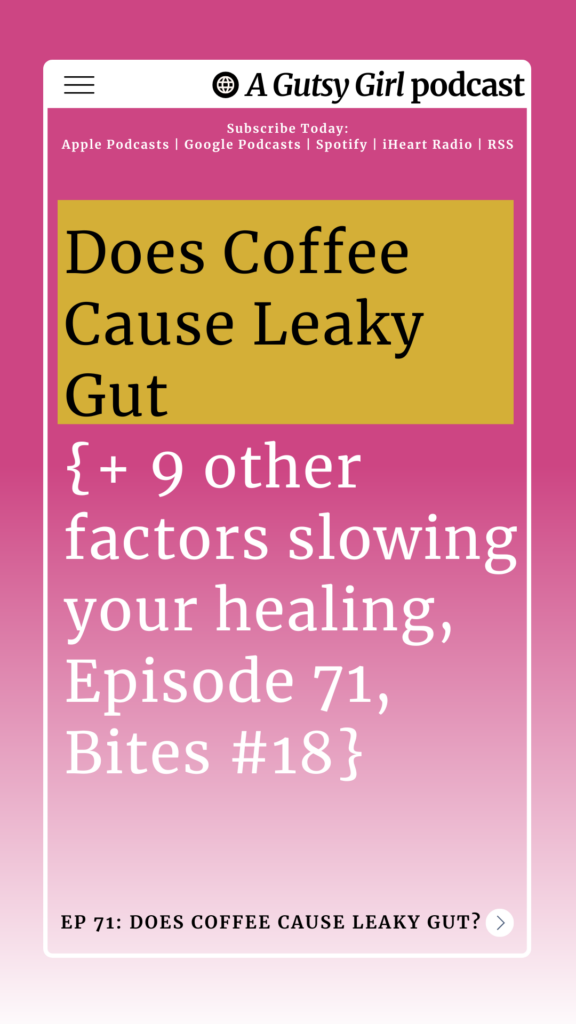
What is Leaky Gut Syndrome?
In the simplest terms, Leaky Gut Syndrome is when the cells that make up the lining of the intestinal tract become so inflamed that the gut lining becomes more permeable than it’s meant to be.
Eventually, the walls that line the intestinal tract become permeable to the degree that undigested food particles and gut flora enter the bloodstream. (Source)
This in turn leads to things like (or alternatively can co-exist with) irritable bowel syndrome, poor bowel movements, stomach pain, disrupted gut microbiota, food allergies, bacterial overgrowth, chronic fatigue, and even inflammatory bowel disease.
The connections between leaky gut syndrome and many other conditions is almost endless.
Some of the main reasons the lining of your stomach becomes permeable than it’s meant to include: alcohol, certain painkillers, pre-existing conditions, sugar, processed foods, chronic stress, toxins, gut microbiome imbalance, mold and even gluten.
So when researching the coffee – leaky gut connection, you’ll notice I did not mention it.
Why is that?
Let’s explore.
What is Coffee?
First, what exactly is coffee?
According to the National Coffee Association, coffee is a noun: The berries harvested from species of Coffea plants. Coffee traces its origin to a genus of plants known as Coffea.
Within the genus there are over 500 genera and 6,000 species of tropical trees and shrubs. Experts estimate that there are anywhere from 25 to 100 species of coffee plants.
There are two predominant types of coffee beans: Arabica and Robusta and three main types of common roasts: light roast, medium roast, dark roast.
What are the overall health benefits of coffee?
According to John Hopkins Medicine, here are 9 reasons why coffee is good for us:
- Recent studies found that coffee drinkers are less likely to die from some of the leading causes of death in women: coronary heart disease, stroke, diabetes and kidney disease.
- Your body may process sugar better. That’s the theory behind studies that found that people who drink more coffee are less likely to get type 2 diabetes.
- Drinking one to two cups of coffee a day may help ward off heart failure, when a weakened heart has difficulty pumping enough blood to the body.
- Caffeine is not only linked to a lower chance of developing Parkinson’s disease, but it may also help those with the condition better control their movements.
- Both regular and decaf coffee seem to have a protective effect on your liver. Research shows that coffee drinkers are more likely to have liver enzyme levels within a healthy range than people who don’t drink coffee.
- Dark roast coffee decreases breakage in DNA strands, which occur naturally but can lead to cancer or tumors if not repaired by your cells.
- One in 23 women develop colon cancer. But researchers found that coffee drinkers — decaf or regular — were 26 percent less likely to develop colorectal cancer.
- You may decrease your risk of getting Alzheimer’s disease.
- For women, drinking at least one cup of coffee a day is associated with lowered stroke risk, which is the fourth leading cause of death in women.
Also, it’s simply a beverage that, for many, is a total delight; a life staple. I am one of them.
And there is something to be said about the joy that comes along with the simple pleasures in life while on your gut healing journey. Believe me.
While John Hopkins Medicine and many other resources provide a ton of health benefits, we all still sit here and wonder — Okay, but what is doing to the gut? Anything?
First, the question is “Does coffee cause leaky gut?”
Coffee and Intestinal Hyperpermeability
I’ve never run across a source yet that states coffee as a major cause of leaky gut, but might it contribute to an already existing leaky gut? Sure. I simply don’t believe it causes intestinal permeability.
The knock on coffee, as it relates to gut health and digestive problems are these 7 main things:
- Coffee contains caffeine, and caffeinated beverages are known irritants that can also cause inflammation. The NIH has reported that regular consumption of coffee appears to be associated with changes in some intestinal microbiota groups in which dietary (poly)phenol and caffeine may play a role.
- Use of artificial sweeteners. Studies have shown that artificial sweeteners can have a detrimental effect on the bacteria in the intestine and also can affect the intestinal lining. I have shown the connection between chronic inflammation and various nonnutritive sweeteners.
- Coffee can have a laxative effect, which causes diarrhea and pain in the stomach.
- Imbalance of gut bacteria. One source I found stated that, “Drinking too much coffee can have negative effects on the gut. Coffee is a diuretic and can dehydrate you, which will lead to bad bacteria growing in your gut. This can lead to bloating, constipation and diarrhea.” Side note: the caffeine can also cause you to lose water and electrolytes. See below for my “hack” in getting around this.
- Coffee contains tannins that bind with nutrients like iron and zinc in your digestive tract making it difficult for them to be absorbed properly into the bloodstream, which can lead to nutrient deficiencies.
- The source matters. Coffee is the number one pesticide sprayed crop in the world. Because coffee beans are so expensive compared to other crops, farmers will do everything it takes to protect their crops from various pests using pesticides the use of fertilizers to help them grow.
- The acidity factor. One knock on coffee is always “it’s too acidic.” The pH scale goes from 0 – 14 (0 = highly acidic; 14 = highly alkaline). A 7 is neutral. Coffee is somewhere between a 4-5 typically. So yes, it is more acidic than other things, but even a lemon is a 2, so coffee is definitely not the most acidic food/beverage we consume. Even still, for a condition like Acid Reflux or GERD (if you’re there), the 4-5 might be far too much for you. And that could cause digestive issues.
And while those are all knocks on coffee, research still doesn’t fully indicate – or indicate at all – that coffee causes leaky gut.
Can I still drink coffee while healing?
While this is definitely not medical advice, most people can, in fact still drink coffee while healing.
Too much caffeine is the primary issue with coffee and the leaky gut conversation, not low-to-moderate coffee consumption.
If you are truly concerned about coffee and leaky gut and/or your gut healing journey in general, here are 5 things to take into consideration:
- Stop being obsessed. The stress is going to hurt you more than anything.
- Avoid drinking it on an empty stomach.
- Have 1-2 cups vs 7-8. Quantity for coffee intake, in this case, matters.
- Buy organic coffee.
- Strategically choose what you add to it. Ready for this coffee hack?
Coffee Hack
Remember from above that two of the reasons coffee causes problems for the digestive system include: “what you’re adding to it,” + a loss of electrolytes.
So here is what I do…. I actually use my electrolytes as the sweetener.
And here’s how.
I brew regular, organic coffee and then I pour about 1/3 pack of LMNT electrolyte in. My favorite flavors in the coffee include:
- Mint Chocolate
- Chocolate Caramel
- Chocolate Salt
All three flavors are part of the Chocolate Medley, and I’m not sure how long they will be around, but you should, at the very least, always be able to have access to the Chocolate Salt.
Anyways, it’s so good and the perfect addition, combatting two “negatives” around coffee and the gut.
Can I Have Tea?
One final note I’ll make is that a common question comes up,
Is it okay for me to swap green tea or black tea for coffee if I’m concerned about coffee consumption?
Well, that depends on why you think you need to replace the tea for coffee.
This graphic might help.
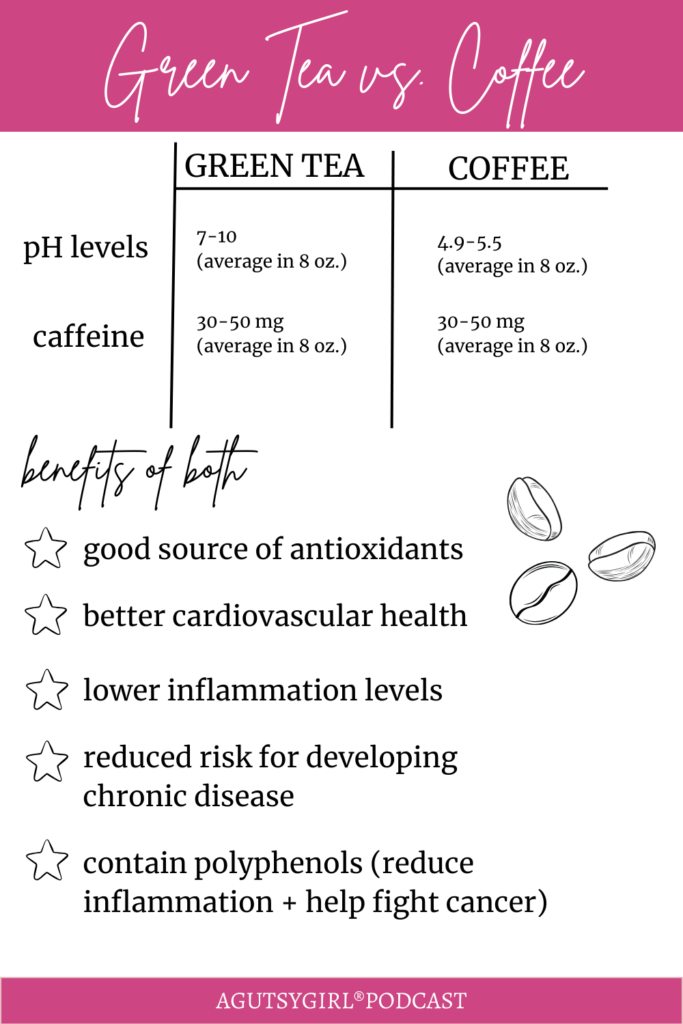
If you’re trying to completely rid your system of any and all coffee drinks, you could consider herbal teas.
They are naturally void of caffeine, which again, is typically the biggest concern with consuming coffee when the intestines are more permeable than they should be.
More from A Gutsy Girl
Want to learn even more about the gut and ways to heal it?
Learn all the secrets via my signature book, A Gutsy Girl’s Bible: a 21-day approach to healing the gut. Grab your copy on Amazon HERE.
- Welcome to A Gutsy Girl Podcast
- Hang out on Instagram
- BFF’s on YouTube
- Free resource: The Master Gutsy Spreadsheet
- Rated-G Email Club
Wrap Up
Time to wrap this up. As always, a huge goal for this show is to connect with even more people. Feel free to send an email to our team at podcast@agutsygirl.com. We want to hear questions, comments, show ideas, etc.
Did you enjoy this episode? Please drop a comment below or leave a review on Apple Podcasts.
If you liked this post on coffee and leaky gut, you might also enjoy:
- Symptoms of Leaky Gut
- Food Allergy, Food Sensitivities, or a Leaky Gut?
- Does Collagen in Coffee Break a Fast? {Your Guide To Collagen}
Some of the links in this post are affiliate links. This means if you click on the link and purchase the item, I may receive a small commission at no extra cost to you. All opinions remain my own.
Article source: HERE
Xox,
SKH
🤰 bloating be gone! weight loss through optimal gut health for women
💃ʜᴇᴀʟ ʏᴏᴜʀ ɢᴜᴛ. ʜᴇᴀʟ ʏᴏᴜʀ ʟɪfe.
🫶🏻 founder gutbyome.com

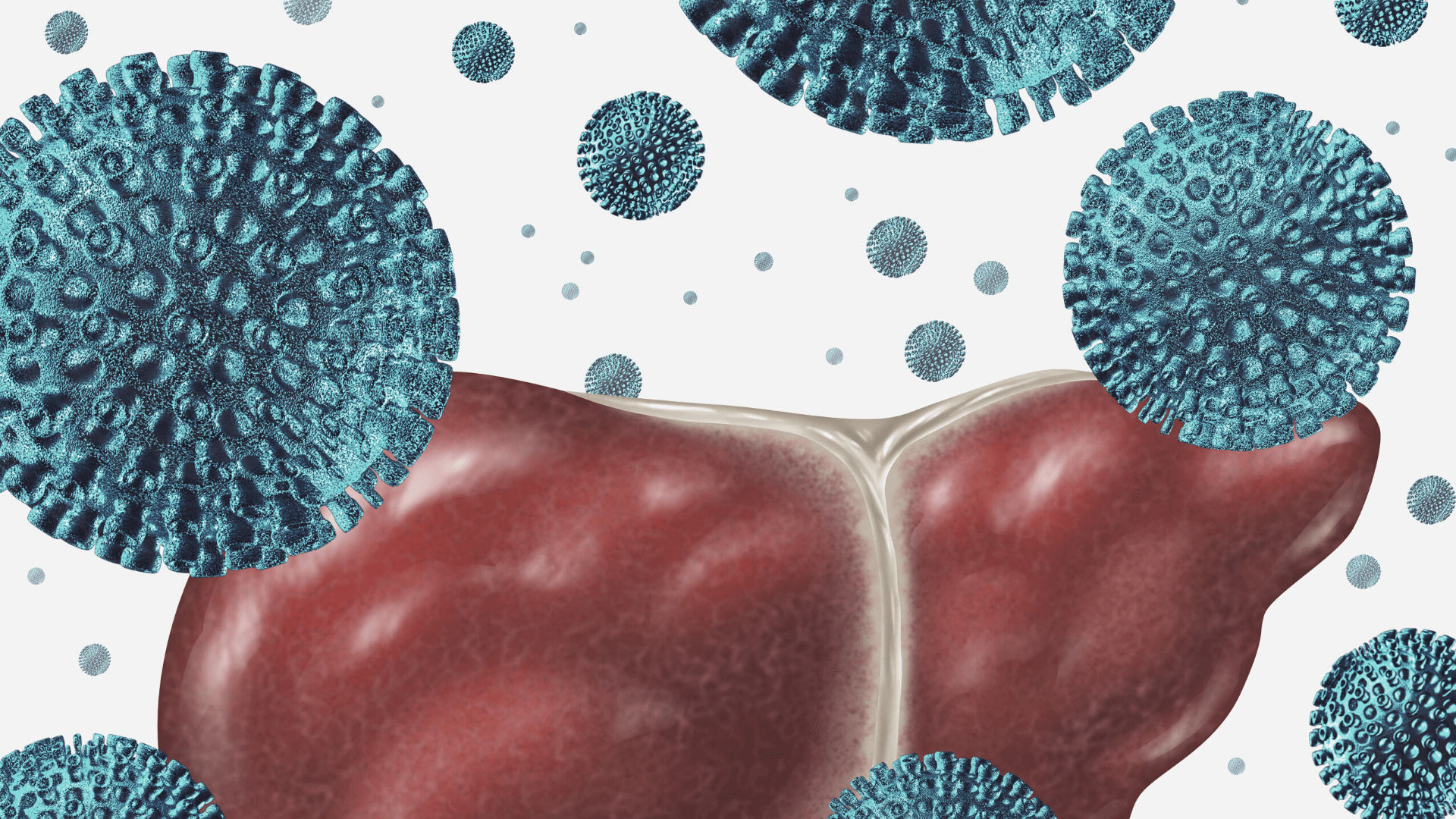
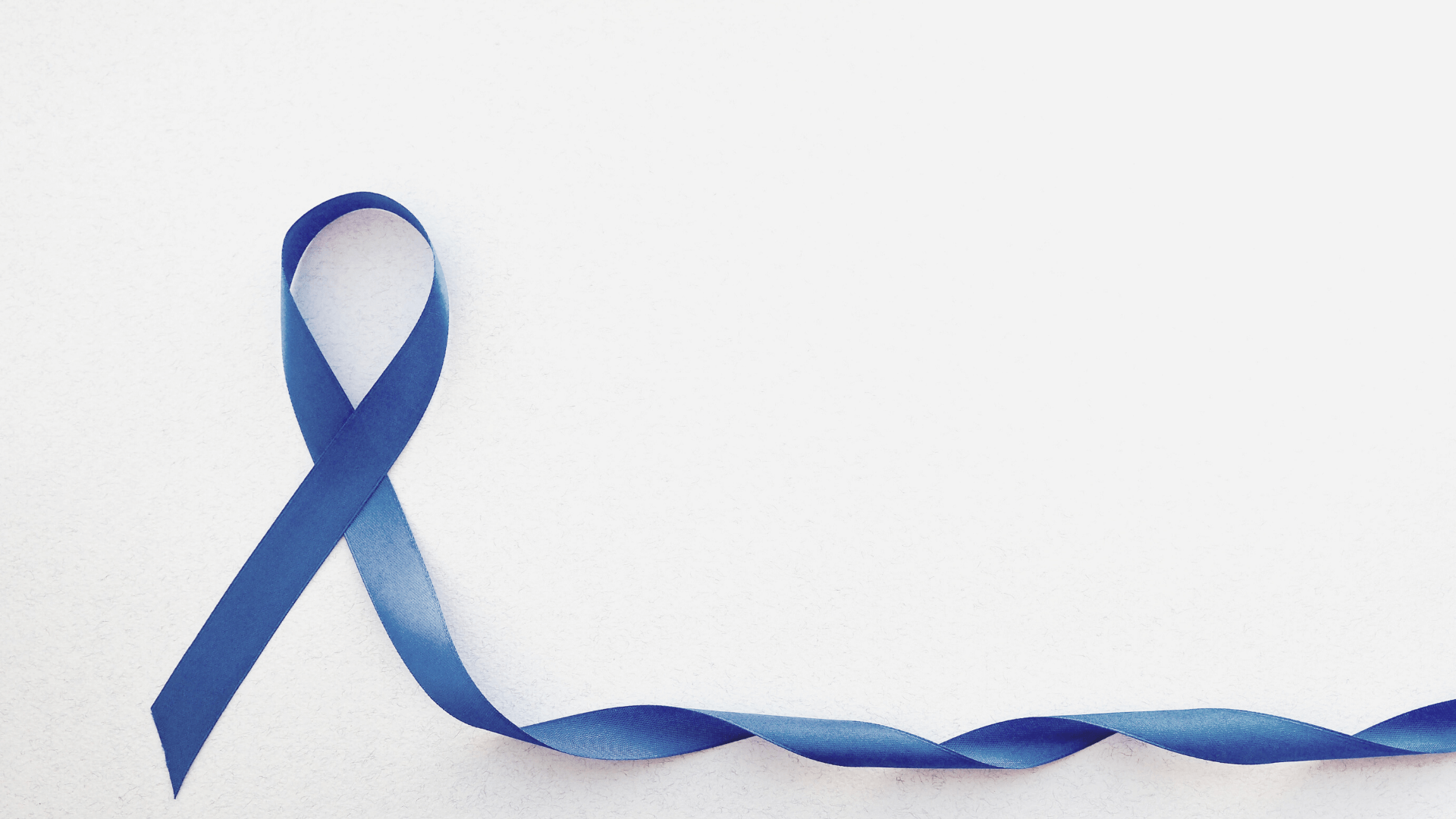
![IBS vs IBD [What’s the Difference]](https://agutsygirl.com/wp-content/uploads/2019/08/reflux-featured-agutsygirl.com_.png)
